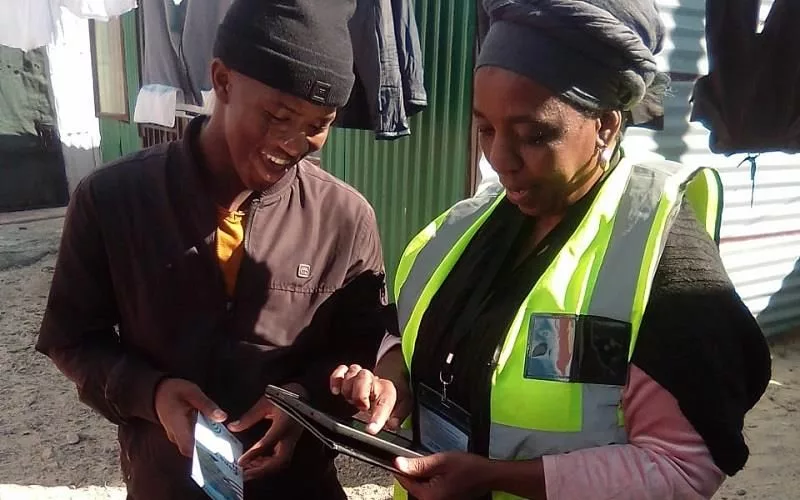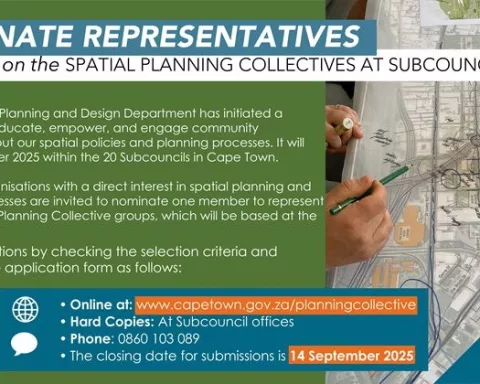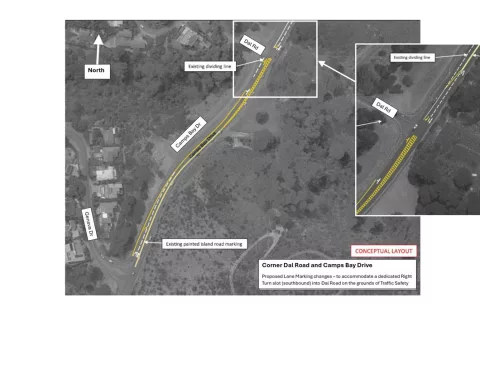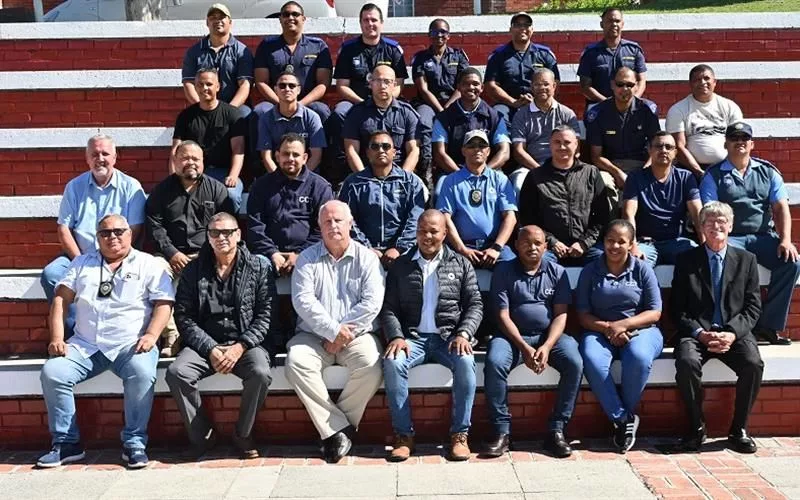The City of Cape Town is conducting a household survey to gain insight into the socio-economic circumstances of different communities, with over half of the targeted 10,000 interviews already completed. Residents can participate to help shape their communities’ future and enhance service delivery. The collected data is confidential and adheres to the Protection of Personal Information Act, and participation is voluntary. Kantar, a data collection agency, is conducting the survey with safety measures in place to ensure legitimacy and minimize privacy intrusion.
How can you participate in the City Initiative to shape your neighbourhood?
Participate in the City of Cape Town’s household survey to provide valuable insights into your community’s socio-economic circumstances. The survey covers areas such as Montana/Montevideo/Charlesville, Retreat, Brooklyn, Wesbank, Kensington, Thornton, Vrygrond, Philippi/Klipfontein Glebe (Philippi), Philippi Small Holdings (Philippi), Phola Park/Zondi (Gugulethu), and Silver Town (Khayelitsha). Participation is optional but recommended to aid in enhancing service delivery and shaping your community’s future. Contact CapeTown.Survey@capetown.gov.za or visit https://www.capetown.gov.za/general/city-survey for more information.
Since March 2024, the City of Cape Town has been tirelessly collecting data via an extensive household survey. Their goal is to gain an in-depth insight into the socio-economic circumstances of diverse communities throughout the city. This survey, expected to wrap up by the end of May, has made impressive progress with more than half of the targeted 10,000 interviews already conducted.
Utilising Survey Insights to Shape Neighbourhoods
Areas such as Montana/Montevideo/Charlesville, Retreat, Brooklyn, Wesbank, Kensington, Thornton, Vrygrond, Philippi/Klipfontein Glebe (Philippi), Philippi Small Holdings (Philippi), Phola Park/Zondi (Gugulethu), and Silver Town (Khayelitsha) have been incorporated into this initiative. The City extends its warm appreciation to all households that have generously given their time and contributed to the survey. The unique perspectives provided by the residents are of immense value and play a vital role in forming an understanding of the distinct socio-economic dynamics of each suburb.
Geordin Hill-Lewis, the Mayor, highlighted the importance of this survey, stating, “Through participation, residents actively shape their communities’ future, aid in enhancing service delivery, and assist the City of Cape Town in making informed decisions about the redesign or expansion of our programs and services.”
Importance of Participation and Upcoming Areas
Although participation is optional, it is fundamental as it assists in supplying the City with a more accurate and up-to-date comprehension of each neighbourhood and community. The City encourages residents who have not yet been interviewed to participate when surveyors visit their areas. The imminent three weeks will see the survey carried out in numerous areas, including Bellville, Constantia/Bishopscourt, Fish Hoek, Cape Town CBD and Greenpoint, Somerset West, Claremont/Wynberg, Rondebosch, Rosebank, and Mowbray.
Objective and Privacy of the Survey
The household survey is designed to gather socio-economic and demographic data such as the ages, gender, education, health, employment, and travel needs of each household member. Furthermore, it delves into factors like access to basic services and use of public amenities, status of home ownership or renting, household income and expenditure, and challenges encountered by the household or household members, including crime and food insecurity.
The collected data adheres to the Protection of Personal Information Act (POPIA) and is deemed confidential. The data will only be used for statistical and research purposes. Participation is voluntary, and every participant has the right to access, correct, or request the deletion of the gathered information.
Ensuring Legitimacy and Safety during Data Collection
The City has delegated the task of conducting the survey to Kantar, a data collection agency. To guarantee the legitimacy and safety of the participants, the interviewers will carry an ID badge, a bib bearing the City’s logo, an informational pamphlet, and a QR code that leads to the survey details on the City’s website. For additional verification, residents can contact the field manager, whose details are provided on the interviewer’s ID badge, or they can reach out to the City’s call centre at 0860 103 089.
The interviewers will respect residents’ privacy by conducting all interviews at the property boundary and will not request access to the property or home, ID numbers, or banking details.
For more information about the household survey or to participate, residents can email CapeTown.Survey@capetown.gov.za or visit https://www.capetown.gov.za/general/city-survey. The City of Cape Town is urging residents to seize this opportunity to actively influence their communities and contribute to improving service delivery within their neighbourhoods.
What is the City of Cape Town’s household survey, and why is it being conducted?
The City of Cape Town’s household survey is an initiative to gain insight into the socio-economic circumstances of different communities. It aims to collect data on factors such as household income and expenditure, access to basic services and use of public amenities, health, employment, education, and challenges encountered by the household or household members. The collected information will aid in enhancing service delivery and shaping the future of each community.
Is participation in the household survey mandatory, and what areas does it cover?
Participation in the household survey is voluntary, but the City of Cape Town encourages residents to participate to aid in enhancing service delivery. The survey covers areas such as Montana/Montevideo/Charlesville, Retreat, Brooklyn, Wesbank, Kensington, Thornton, Vrygrond, Philippi/Klipfontein Glebe (Philippi), Philippi Small Holdings (Philippi), Phola Park/Zondi (Gugulethu), and Silver Town (Khayelitsha).
Is the data collected confidential, and what is the purpose of the survey?
The collected data is confidential and adheres to the Protection of Personal Information Act (POPIA). The data will only be used for statistical and research purposes to aid in enhancing service delivery and shaping the future of each community.
How can residents participate in the household survey, and what safety measures are in place?
Residents can participate in the household survey by contacting CapeTown.Survey@capetown.gov.za or visiting https://www.capetown.gov.za/general/city-survey for more information. Kantar, a data collection agency, is conducting the survey with safety measures in place to ensure legitimacy and minimize privacy intrusion. Interviewers will carry an ID badge, a bib bearing the City’s logo, an informational pamphlet, and a QR code that leads to the survey details on the City’s website. The interviewers will conduct all interviews at the property boundary and will not request access to the property or home, ID numbers, or banking details.
What types of information are being collected in the survey, and what is the objective?
The household survey is designed to gather socio-economic and demographic data such as the ages, gender, education, health, employment, and travel needs of each household member. It also delves into factors like access to basic services and use of public amenities, status of home ownership or renting, household income and expenditure, and challenges encountered by the household or household members, including crime and food insecurity. The objective of the survey is to gain an in-depth insight into the socio-economic circumstances of diverse communities throughout the city.
What areas will the survey be conducted in the near future?
The survey will be carried out in numerous areas in the near future, including Bellville, Constantia/Bishopscourt, Fish Hoek, Cape Town CBD and Greenpoint, Somerset West, Claremont/Wynberg, Rondebosch, Rosebank, and Mowbray.












